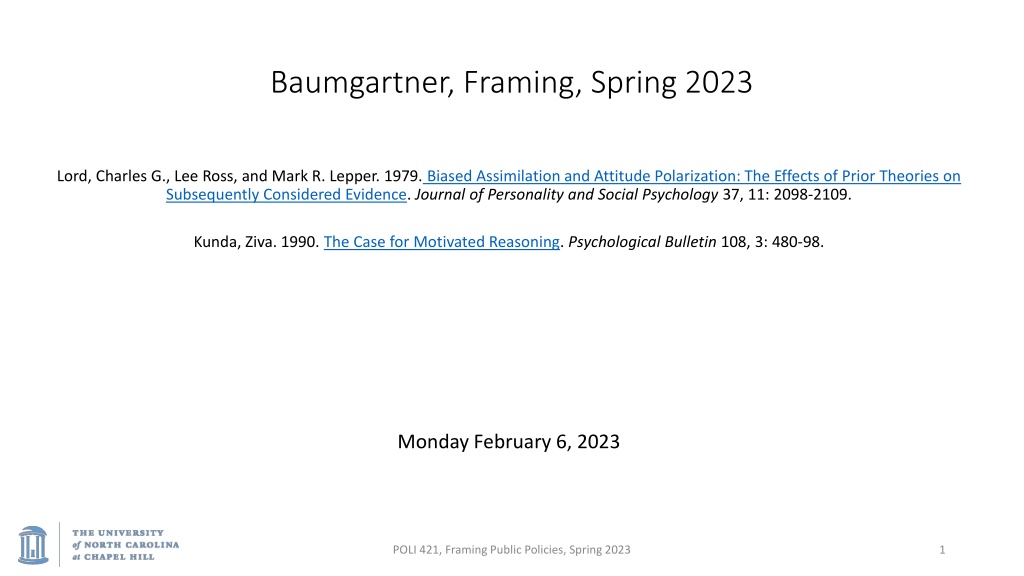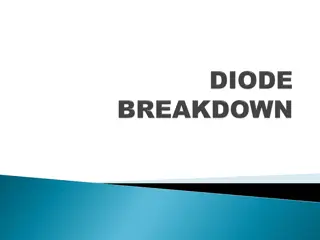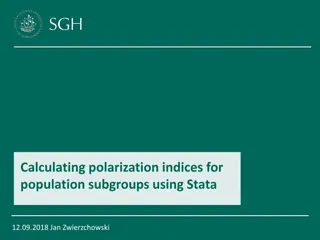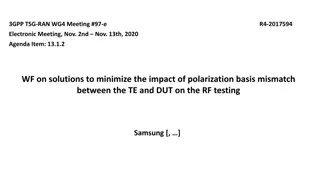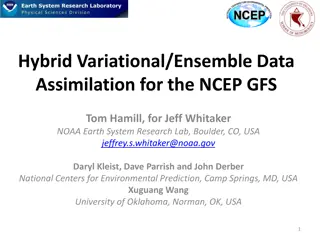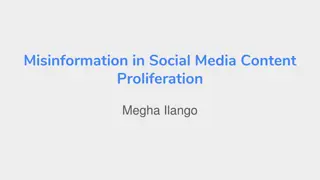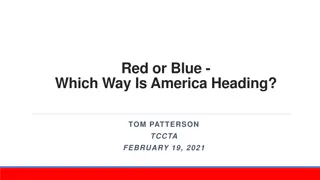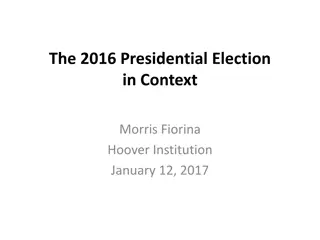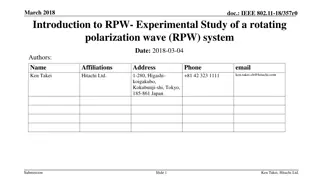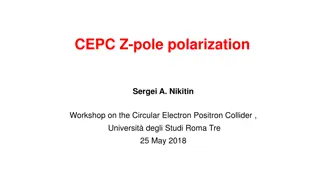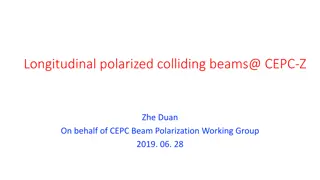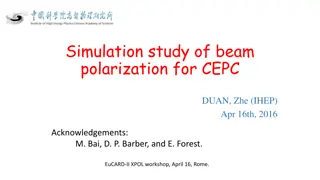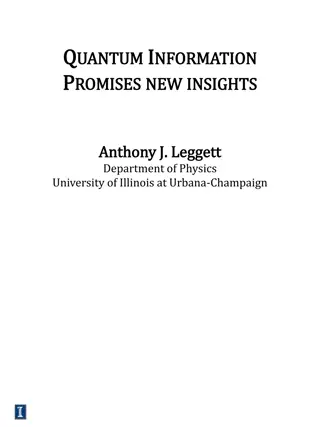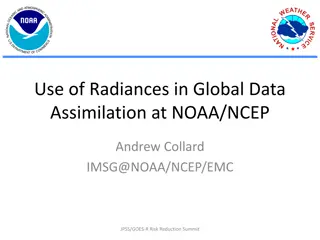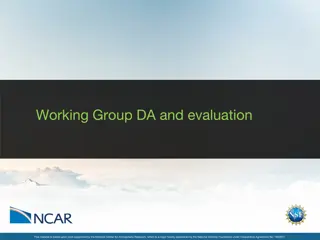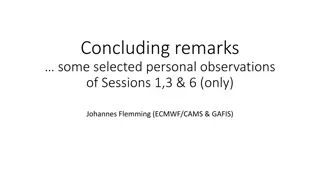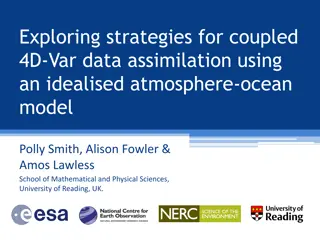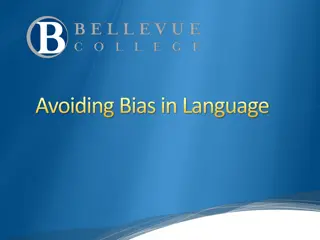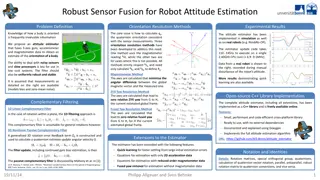Understanding Biased Assimilation and Attitude Polarization in Social Disputes
People with strong opinions on complex social issues tend to interpret evidence in a biased manner, accepting confirming evidence readily while subjecting disconfirming evidence to critical evaluation. This can lead to increased polarization rather than narrowing of disagreement when exposed to the same evidence. Motivated reasoning plays a role in influencing how evidence is considered and supports initial positions. Different motivations, such as protecting one's opinion or seeking accuracy, impact how evidence is evaluated in decision-making processes.
Download Presentation

Please find below an Image/Link to download the presentation.
The content on the website is provided AS IS for your information and personal use only. It may not be sold, licensed, or shared on other websites without obtaining consent from the author. Download presentation by click this link. If you encounter any issues during the download, it is possible that the publisher has removed the file from their server.
E N D
Presentation Transcript
Baumgartner, Framing, Spring 2023 Lord, Charles G., Lee Ross, and Mark R. Lepper. 1979. Biased Assimilation and Attitude Polarization: The Effects of Prior Theories on Subsequently Considered Evidence. Journal of Personality and Social Psychology 37, 11: 2098-2109. Kunda, Ziva. 1990. The Case for Motivated Reasoning. Psychological Bulletin 108, 3: 480-98. Monday February 6, 2023 POLI 421, Framing Public Policies, Spring 2023 1
Lord, Ross, and Lepper, 1979 People who hold strong opinions on complex social issues are likely to examine relevant empirical evidence in a biased manner. They are apt to accept "confirming" evidence at face value while subjecting "discontinuing" evidence to critical evaluation, and as a result to draw undue support for their initial positions from mixed or random empirical findings. Thus, the result of exposing contending factions in a social dispute to an identical body of relevant empirical evidence may be not a narrowing of disagreement but rather an increase in polarization (2098). POLI 421, Framing Public Policies, Spring 2023 2
Lets unpack that and set the boundary conditions People who hold strong opinions What if the opinion is not as strong? on complex social issues What if the issue is not that complex? Then evidence matters. apt to accept confirming evidence at face value How likely? How strong does the confirming evidence need to be? Totally at face value, or just a shade? while subjecting disconfirming evidence to critical evaluation How disconfirming? How critical is the evaluation? POLI 421, Framing Public Policies, Spring 2023 3
Start with an attitude, then from there evaluate the supporting or challenging evidence. Two models of decision-making: Lawyer defending a client (The client: your predisposition. The lawyer: your reasoning abilities.) Judge or Scientist neutrally evaluating the evidence for and against. Key question: do you care? Are you motivated to reach a certain conclusion? Goal: Accuracy, or direction? POLI 421, Framing Public Policies, Spring 2023 4
Times when you care, and when you dont From personal life and from public policy, think of two examples of things where you care deeply about protecting an opinion. Family / group / school / identity loyalty? A policy preference, say on the issue of abortion perhaps? Think of others where you really do want to protect your opinion. Think of examples where you do not have a dog in that fight: Will the final exam in this class be at this time or that time? (You just want the right answer, based on evidence!) (Accuracy motive.) Who will win the softball game between Columbia and Brown? (Huh? You don t care, so you have no motivation to promote one idea over another.) Think of other cases where you don t try to protect your opinion. Is that because you don t have an opinion, or because you want to know the actual answer to the question? ( neutrality v. accuracy goal ) POLI 421, Framing Public Policies, Spring 2023 5
What are the limits to this phenomenon? Accuracy goals, rather than directional goals Simple issues, rather than complex ones People w/o strong opinions, rather than strong ones Clear evidence, rather than ambiguous, multifaceted evidence People with lots of knowledge on the subject matter Others? POLI 421, Framing Public Policies, Spring 2023 6
What would you rather do? Watch a team sport event with others rooting for the same team? in mixed company ? Watch the election results With others who voted for the same set of candidates? In mixed company? Discuss and strategize about climate change or some other issue With people who agree with you? With some oil executives in the room, just to make it interesting? POLI 421, Framing Public Policies, Spring 2023 7
What is the difference in those situations? Homogeneous company: Anything you say, no matter how dumb: Everyone agrees with you! Wow. You re a genius! No one asks you to back that up. No one else in the room says stuff you have to get upset about or get in an argument, which could be unpleasant. Heterogeneous company: All the arguments get complicated and everyone wants proof or evidence for what ever you say. No wonder we like our echo-chambers! POLI 421, Framing Public Policies, Spring 2023 8
Times when the echo-chamber is impossible. The academic peer-review process. Cross examination in court, or the legal process in general. Institutional settings where someone in charge can force diverse perspectives to come to the table. In other words, we can design systems to avoid this. But it sure is more fun to be among friends! POLI 421, Framing Public Policies, Spring 2023 9
Lets look at their study and results Pro and anti-capital punishment attitudes divide two groups. Present both groups with empirical studies that show that capital punishment does or does not deter. How good were the studies: how well were they conducted? Ratings of quality: ones that agree with my opinion are better! (p. 2102, table 1). Ratings of how convincing the studies were: same findings. Agreement and rebuttals to the study: totally predictable Attitude change: everyone got their attitudes reinforced, even though the evidence was neutral / balanced (Tables 2-3, 2103-2104). POLI 421, Framing Public Policies, Spring 2023 10
Kunda: How does the brain work when it has directional v. accuracy goals? Accuracy goals More cognitive effort Attend to relevant information more carefully Process the information more completely Use more complex rules of decision making Directional goals Search memory for supporting beliefs and rules Creatively combine knowledge to create new beliefs to support the position Assess only a subset of things in memory (Note: This is a lot easier!!!) POLI 421, Framing Public Policies 11
Allocation of attention and effort Welcome, unsurprising, preference-consistent, expected information need not take your time Surprising, unwelcome, potentially threatening information requires scrutiny A surprising corollary of this: Equal amounts of information on two sides of a question can cause you to reinforce your prior beliefs: You spend a lot of energy refuting the unwelcome information, and accept the welcome information without review. Net result: even stronger belief in prior attitudes. POLI 421, Framing Public Policies 12
Can evidence backfire? All the time! Step 1. You have a strong attitude about something. Step 2. I helpfully give you evidence showing you are an idiot. Step 3. What do you do? Thank me? Rack your brain and the internet for reasons why you are actually right? Step 4. I m no longer your friend and your attitude is actually reinforced. You have gone through your memory or done more research motivated by the desire to retain your self-esteem. Your attitude is even firmer now Question: when would this happen, and when would it not happen? POLI 421, Framing Public Policies, Spring 2023 13
How is this behavior adaptive for humans? Why waste your brain on things that clearly make sense? Figuring out anomalies is more important than gathering more evidence for things you already know! Surprises need more attention; expected outcomes can be taken with little effort. You spend your brain power on things that don t make sense. But, in politics, where evidence is unclear, this can lead to reinforcement of previously held opinions. POLI 421, Framing Public Policies, Spring 2023 14
Kundas conclusions This is a serious issue. Maybe some positives: we can keep our self-esteem! Maybe some negatives: people can irrationally avoid responding to skin cancer or the risk of drunk driving, causing their own deaths For our purposes: understand how creative and powerful the motivated brain can be to support its pre-existing attitudes. This is not absolute, as evidence can convince even a skeptic. However, it s pretty dang strong! POLI 421, Framing Public Policies 15
Confirmation bias, disconfirmation bias It just relates to how you seek out information or respond to information presented to you. Confirmation: seek out only those elements in your own memory that justify your position Confirmation: seek out new information in ways that makes it more likely to support your position. (Ex: ask people who you expect will agree with you, search for where you expect confirmation ) Disconfirmation: fight off hostile ideas (do the opposite) Seek out thoughts from memory, or information from others that helps you dismiss or discount the unwelcome stuff coming at you POLI 421, Framing Public Policies 16
Lets apply this to a criminal investigation tunnel vision get the bad guy Note: this is only called tunnel vision if you prematurely and wrongly conclude you know who the bad guy is. If it really is the bad guy, it s Justice. But gathering evidence to convict someone is not the same as evaluating all the evidence and seeing where it leads. Confirmation bias: Seek out inculpatory information, interpret it in the worst light for the suspect Disconfirmation bias: ignore, discount, don t look for exculpatory information of that which leads to another suspect. Let s hope your initial hunch was correct! Problems here come in those cases where the hunch was wrong. Many of those wrongfully convicted have characteristics that make the police believe they may have done it. But a general suspect character does not equal guilt POLI 421, Framing Public Policies 17
Setting Group Limits on Directional Bias: Strong motivations, but with some bounds. How to do this: Attempt to be rational / force others to explain themselves Construct a justification that would convince another person Draw the desired conclusion only if they can find the evidence illusion of objectivity is this really objective? No clear rules / boundaries of how much the justification has to be valid, but it is a concern and you do have some boundaries on this. Being concerned about confirmation bias can allow safeguards. What are work environments where there are strong procedures designed to ensure accuracy goals? Safety engineering, medicine, what other examples can you think of where people are not allowed, in a group setting, to go off on a hunch w/o balanced consideration of all the evidence? Airplane pilots POLI 421, Framing Public Policies 18
Who should run the forensics lab? Police investigators need to solve the crime So when they send a blood sample to be tested, should the investigator be aware of who is the suspect? (BTW, most forensics labs are run by the prosecutor / attorney general ) Studies: even when they told forensic anthropologists the simple fact that the dead body had a female or male name, they were more likely to find that the skeleton matched a male or female description Police line-ups: You want to convict the guilty person, certainly. But what if you prematurely conclude that you know who that person is, when your theory is wrong? You can be prone to confirm your incorrect theory, ignoring or downplaying evidence that fits another. POLI 421, Framing Public Policies 19
What are the boundary conditions of this theory? (Always a good question to ask) Cases where it would not apply: Simple issues: evidence matters Overwhelming evidence: you can t ignore it. Where people don t hold strong opinions (no motivation) Where people are motivated not by a direction, but by a desire to be accurate (accuracy goal). When does that happen? Cases where it applies, extra-super-duper Complicated issues (e.g., where the evidence is not overwhelming, or is based on non-comparable trade-offs), issues where the decision-maker has a strong bias. Examples of where it is most and least likely to be an issue? POLI 421, Framing Public Policies 20
